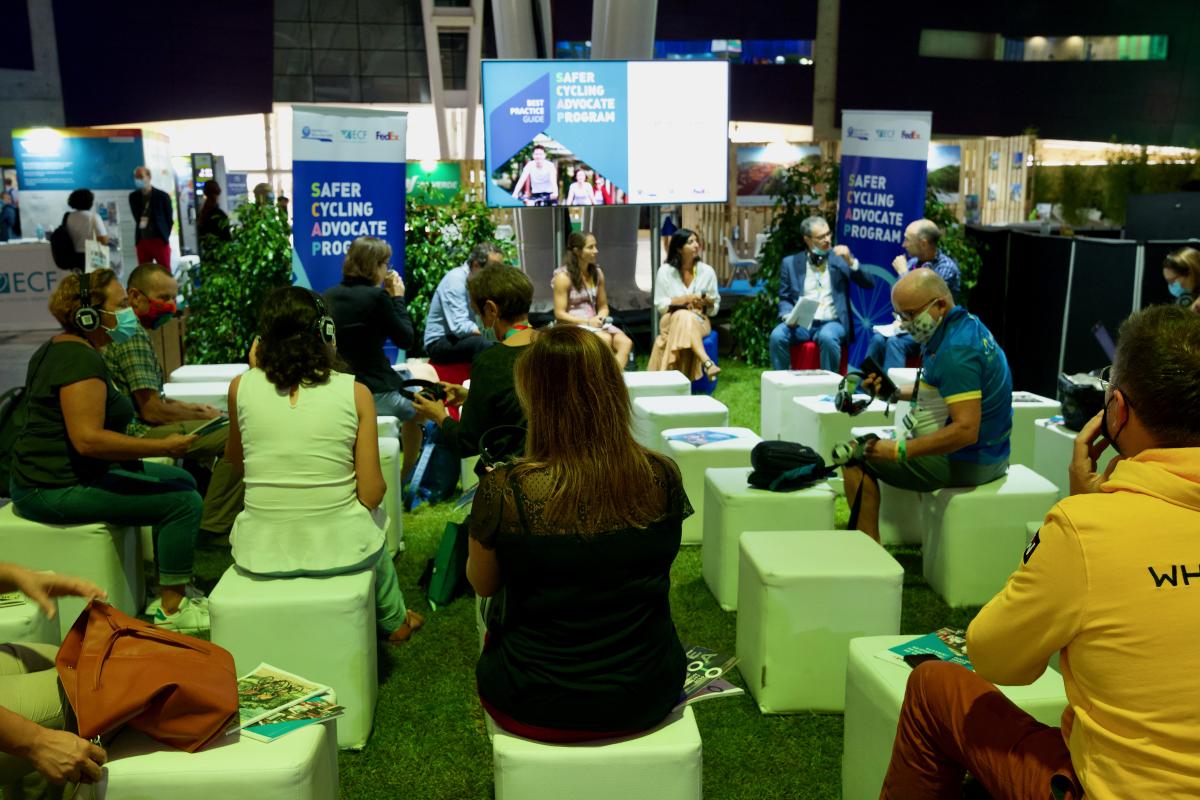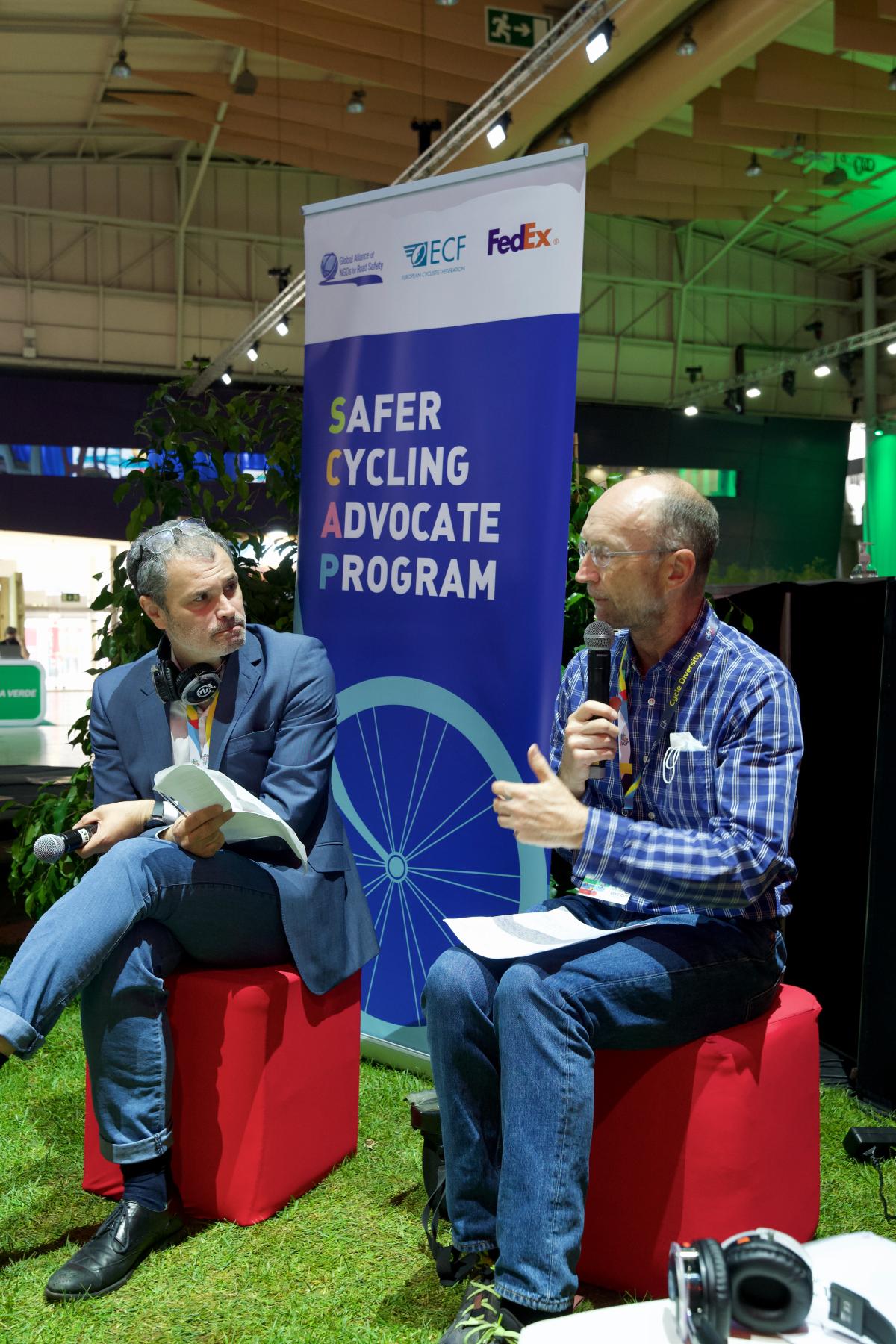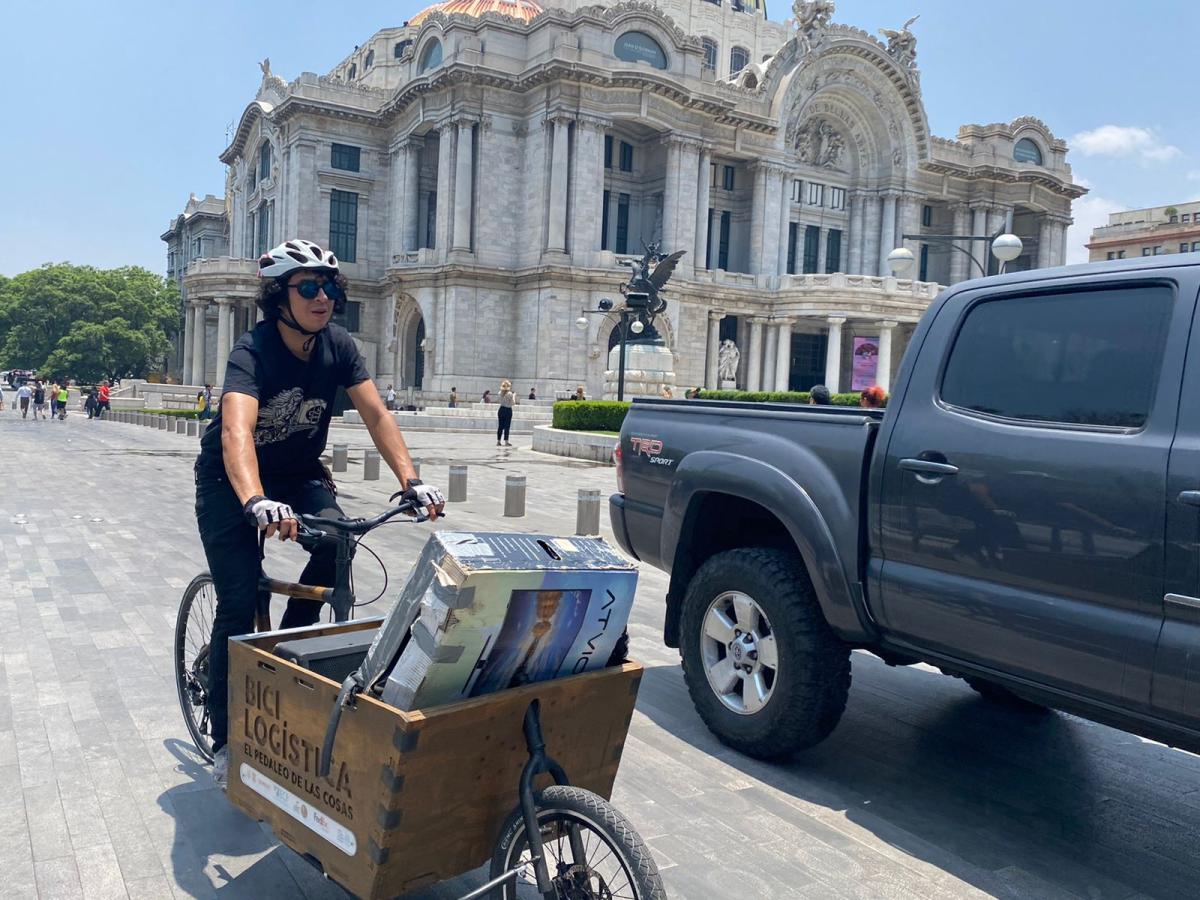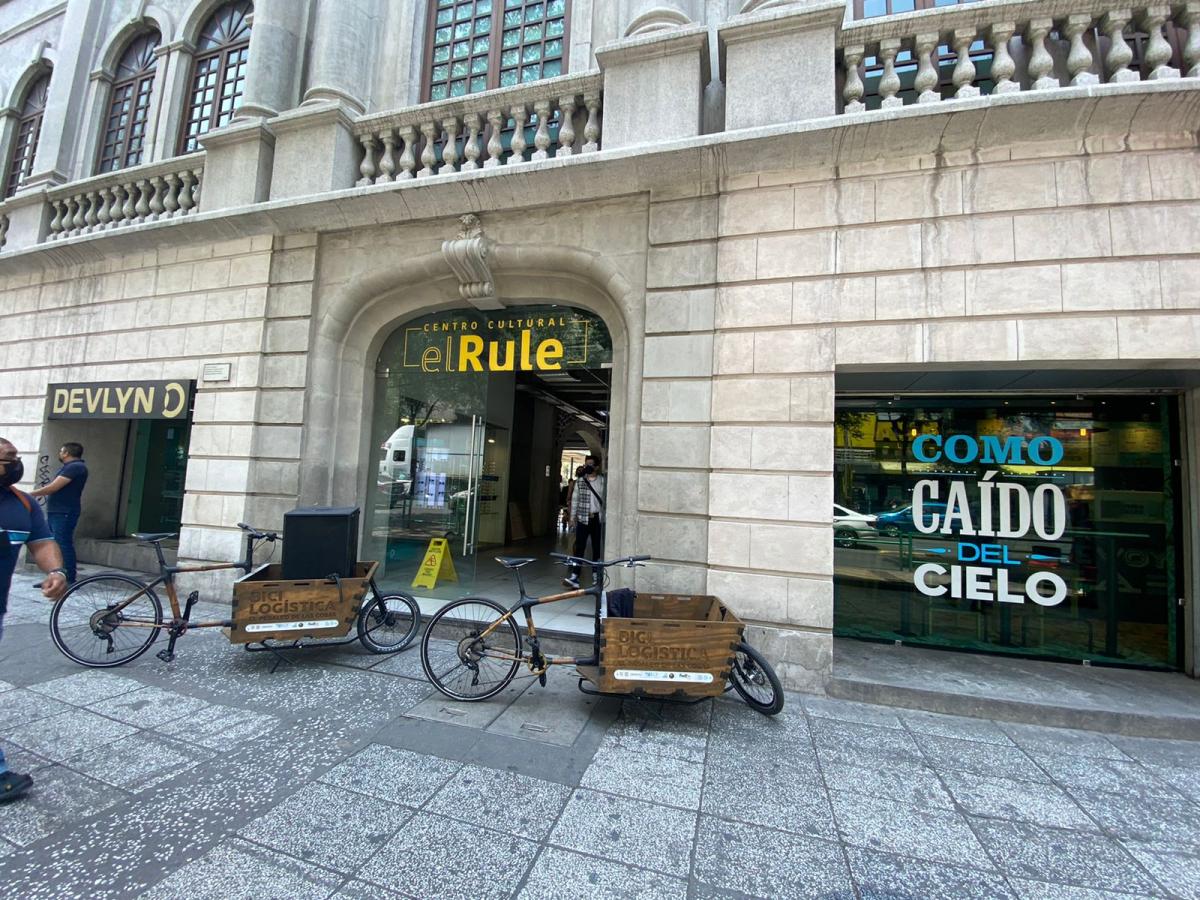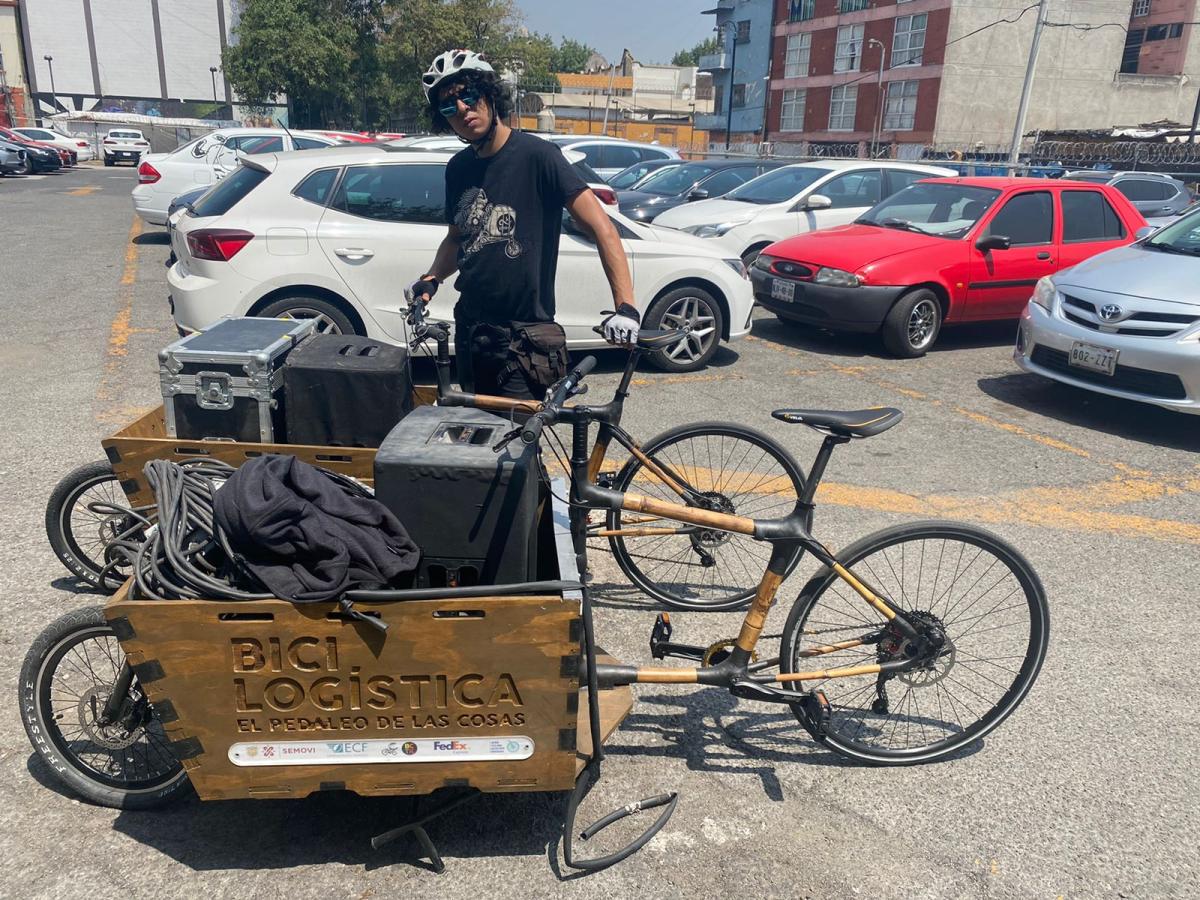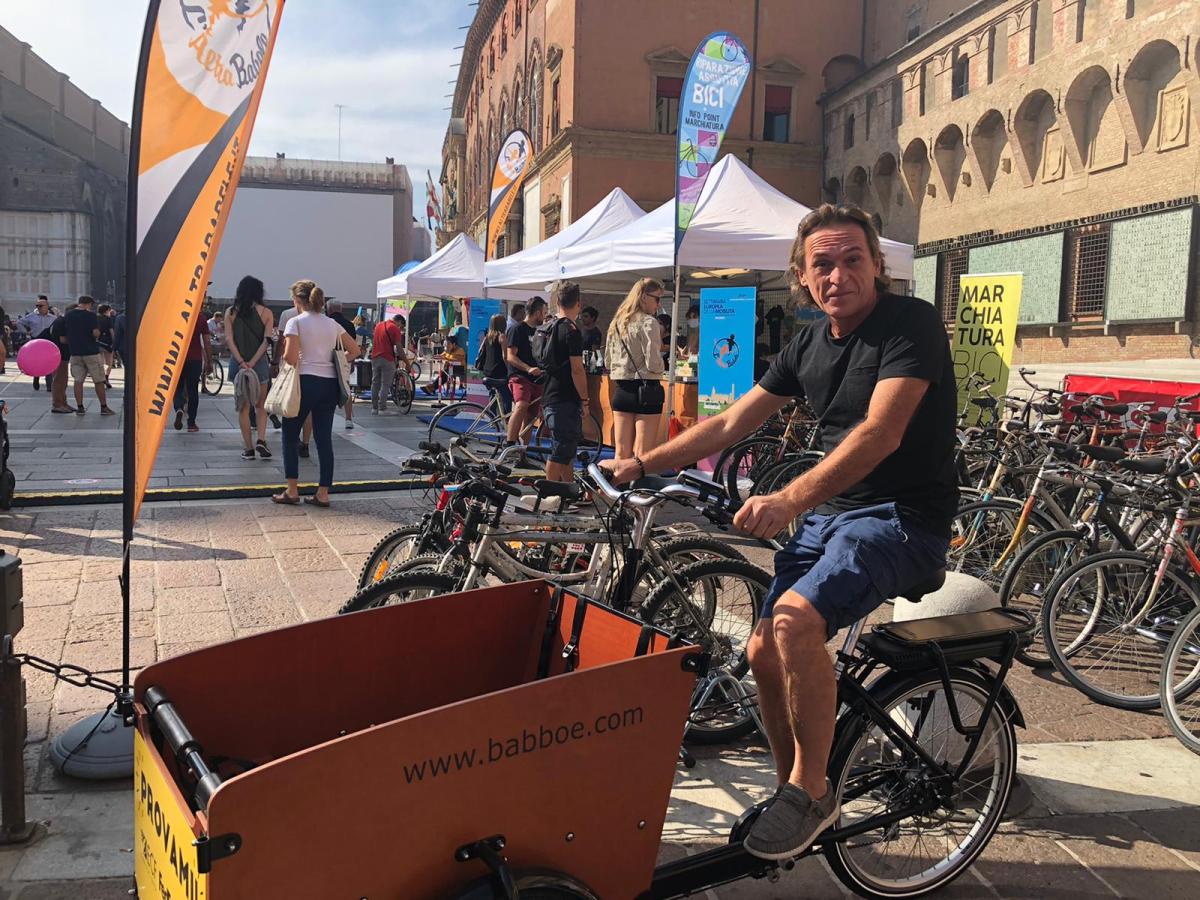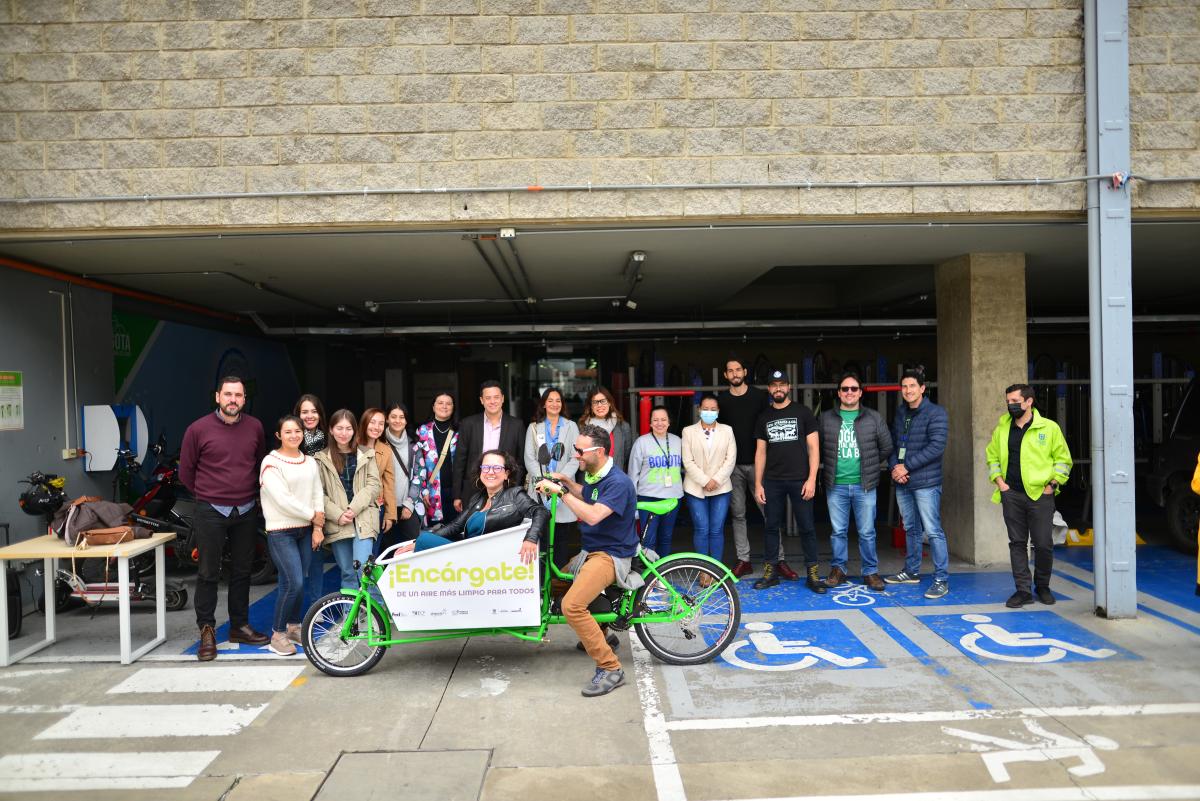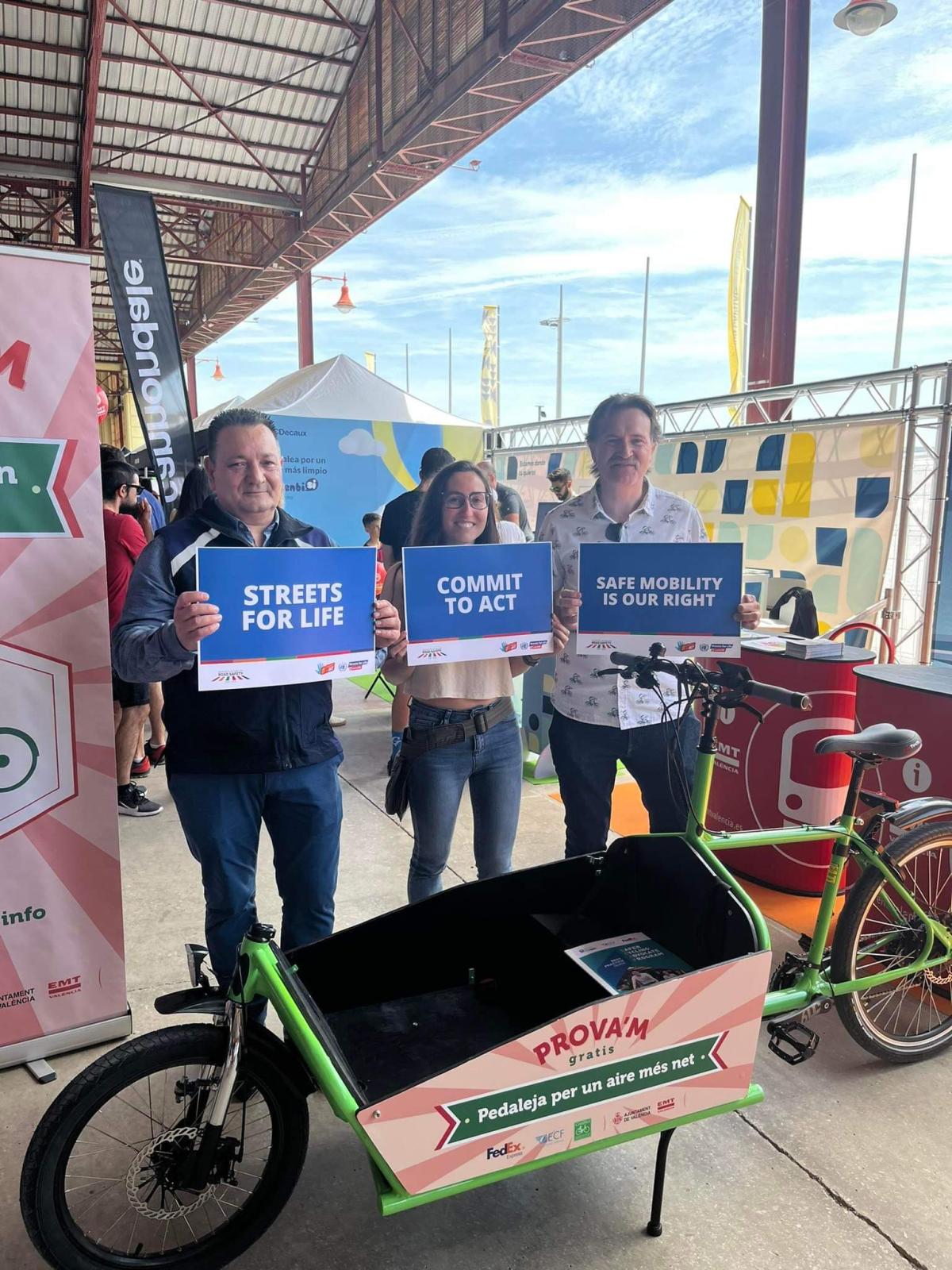Initiative details
The Global Plan for the Decade of Action for Road Safety 2021-2030 (Global Plan), has the priorities to redefine multimodal transport and land plan use, to ensure safety and to equitable access to mobility while responding to the diverse needs and preferences of a population. Cycling and the use of cargo bikes are key players in the mobility landscape and the Safer Cycling Advocate Program (SCAP) promotes cycling and cargo bike use as a safe alternative and modal shift. Cargo bikes are being considered a rising star in urban light mobility since they are capable of solving family (shopping or children) or work (from deliveries to transporting a craftsman's tools) tasks while reducing the impact on the environment. For this reason, the European Union has also launched a programme for the dissemination of cargo bikes (called City changer cargo bike), based on the considerable development potential of this means of transport: up to 25% of all deliveries are made by cargo bikes, up to 25% of deliveries in cities, up to 50% of maintenance services, up to 77% of private journeys.
The Alliance first launched the Safer Cycling Advocate Program (SCAP) in 2019 in collaboration with the European Cycling Federation (ECF) and funding from FedEx. The SCAP promotes safer cycling practices by equipping advocates, organizations, and transport planners to implement steps towards safer and more sustainable active mobility.
The SCAP Guide – a resource compiling the best practices and experiences of Copenhagen (Denmark) and Amsterdam (Netherlands) – two cities with established cycling cultures. Early years of the program focused on the Baltic region, helping to bolster cycling uptake by giving community organizations an evidence base to improve safety for cyclists in Croatia, Slovenia, and Bosnia.
Year three has seen the project evolve and expand – supporting cities to get citizens onto bikes as a mode of sustainable transport. A small fleet of cargo bikes is being introduced to SCAP participating cities for shared public use in Bogota (Colombia), Bologna (Italy), Mexico City (Mexico), Rio de Janeiro (Brazil), Torun (Poland), and Valencia (Spain). Usage data from these bikes will inform cities’ plans as they encourage people to transition from private vehicles to zero-emissions bicycles as a practical solution that does not compromise the ability to carry small goods.
The Alliance first launched the Safer Cycling Advocate Program (SCAP) in 2019 in collaboration with the European Cycling Federation (ECF) and funding from FedEx. The SCAP promotes safer cycling practices by equipping advocates, organizations, and transport planners to implement steps towards safer and more sustainable active mobility.
The SCAP Guide – a resource compiling the best practices and experiences of Copenhagen (Denmark) and Amsterdam (Netherlands) – two cities with established cycling cultures. Early years of the program focused on the Baltic region, helping to bolster cycling uptake by giving community organizations an evidence base to improve safety for cyclists in Croatia, Slovenia, and Bosnia.
Year three has seen the project evolve and expand – supporting cities to get citizens onto bikes as a mode of sustainable transport. A small fleet of cargo bikes is being introduced to SCAP participating cities for shared public use in Bogota (Colombia), Bologna (Italy), Mexico City (Mexico), Rio de Janeiro (Brazil), Torun (Poland), and Valencia (Spain). Usage data from these bikes will inform cities’ plans as they encourage people to transition from private vehicles to zero-emissions bicycles as a practical solution that does not compromise the ability to carry small goods.
Initiative date
to
Who was/is your target audience?
Policy makers
Public authorities
Cyclists
Pedestrians
Others
Topic
Knowledge building and sharing
Create awareness
Provide alternative solutions
Organisation details
Global Alliance of NGOs for Road Safety
Association
Switzerland
Zurich
Contact name
Valeria Motta
Telephone number
+34677228135
valeria.motta@roadsafetyngos.org
Website
Project activities
If you work together with external partners, list the most important partners and briefly describe their role.
So far the program has engaged with the following local organizations:
Brazil: Transporte Ativol, a local NGO that has extensive experience working with the Mobility Laboratory at the Federal University of Rio de Janeiro.
Colombia: Despacio Colombia. As a local partner Despacio Colombia worked with the Municipality in Bogota to define the collaboration scheme, maintenance and storage of the cargo bikes
Italy: FIAB, an Italian NGO, who is in charge of the sharing scheme of the cargo bikes, storage and maintenance
Mexico: Bicitekas, is a local NGO with extensive experience working with the Secretary of Mobility of Mexico City and the technical partner who has worked in collaboration with the Municipality to develop the sharing scheme for the cargo bikes
Spain: ConBici, a strong network organization in Spain that connects cyclists to advocate to increase safer cycling conditions, such as infrastructure, policy, and incentives to increase cycling market share
Authorities engaged:
Matthew Baldwin - Deputy Director of Mobility and Transport EU
Mr. Slavko Davidović - Banja Luka Mayor’s Office, Bosnia
Mr. Miroslav Đerić - Communication Expert, Ministry of Transport Bosnia
Mr. Giuseppe Grezzi - Municipality of Valencia, Spain
Mrs. Catia Chiusaroli - Municipality of Bologna, Italy
Mrs. Alessandra Woszczyna - Municipality of Torun, Poland
Mrs. Małgorzata Ptaszek - Municipality of Torun, Poland
Mr. Pedro Machado, Mobility Office Lisbon, Portugal
Mr. Simone Crispim , Rio de Janeiro Municipality, Brazil
Mr. Thaís Rennó, Rio de Janeiro Municipality, Brazil
Brazil: Transporte Ativol, a local NGO that has extensive experience working with the Mobility Laboratory at the Federal University of Rio de Janeiro.
Colombia: Despacio Colombia. As a local partner Despacio Colombia worked with the Municipality in Bogota to define the collaboration scheme, maintenance and storage of the cargo bikes
Italy: FIAB, an Italian NGO, who is in charge of the sharing scheme of the cargo bikes, storage and maintenance
Mexico: Bicitekas, is a local NGO with extensive experience working with the Secretary of Mobility of Mexico City and the technical partner who has worked in collaboration with the Municipality to develop the sharing scheme for the cargo bikes
Spain: ConBici, a strong network organization in Spain that connects cyclists to advocate to increase safer cycling conditions, such as infrastructure, policy, and incentives to increase cycling market share
Authorities engaged:
Matthew Baldwin - Deputy Director of Mobility and Transport EU
Mr. Slavko Davidović - Banja Luka Mayor’s Office, Bosnia
Mr. Miroslav Đerić - Communication Expert, Ministry of Transport Bosnia
Mr. Giuseppe Grezzi - Municipality of Valencia, Spain
Mrs. Catia Chiusaroli - Municipality of Bologna, Italy
Mrs. Alessandra Woszczyna - Municipality of Torun, Poland
Mrs. Małgorzata Ptaszek - Municipality of Torun, Poland
Mr. Pedro Machado, Mobility Office Lisbon, Portugal
Mr. Simone Crispim , Rio de Janeiro Municipality, Brazil
Mr. Thaís Rennó, Rio de Janeiro Municipality, Brazil
Please describe the project activities you carried/are carrying out and the time period over which these were implemented.
Project activities
At the center of the program is the SCAP Guide that describes best practices gathered from The Netherlands and Denmark, two countries with a strong cycling culture. The guide helps to equip advocates, organizations, and transport planners from countries such as Croatia, Slovenia, and Bosnia, to implement steps towards safer and more sustainable active mobility. It covers policy, infrastructure, road user culture etc. to promote systemic change that enables a safe environment that encourages people to cycle.
The guide can be found here: https://safercycling.roadsafetyngos.org/best-practice-guide/. This guide was developed in 2019, and launched in February 2020.
SCAP has two main components: i) training on safer cycling best practices, and ii) development of a collaboration scheme to introduce a fleet of cargo bikes in a selected city.
SCAP Training:
Equips NGOs and campaigners to advocate with their local and national governments, as well as the general public, for cycling policy, infrastructure, education, legal framework, enforcement, and behaviors that can help to build a safer cycling culture. It includes a three-day training program, during which participants design an advocacy campaign action plan that they implement after the training. The project is a best practice guide, available in Bosnian, Croatian, English, Italian, Portuguese, Slovenian, and Spanish, and offers a communication toolkit to enable cycling advocates to run awareness campaigns. The guide is also publicly available to anyone wishing to promote cycling in their local communities. So far, 115 cycling advocates in Bosnia, Brazil, Colombia, Croatia, Italy, Mexico, Poland, Slovenia, and Spain have undergone the SCAP training program and the results have been promising.
These trainings took place in October 2020, May 2021, and September 2021.
Cargo bikes collaboration scheme:
Through this program we work to introduce a small fleet of cargo bikes to the cities alongside consensus building activities with the local municipalities with the aim to create knowledge exchange and awareness of the benefits of using cargo bikes for short trips.
Firstly we created a working group with members of the municipal staff in each city and with local cyclist organizations, to facilitate and ensure that the exchange takes into account the national legislation and the local socio-cultural context. Our role included providing the working groups with a platform for monthly video-conference calls, documents storage interaction, and coordination. We provided a two-day workshop in each of the cities, which were designed to maximize interactivity and a hands-on approach, that include technical visits, equipment testing and citizens’ participation. Through these workshops we secured that the local authorities could conduct the maintenance, storage, and practical location of the cargo bikes.
Once this was completed we developed a cooperation scheme in each of the cities to give citizens the opportunity to test life with a cargo bike themselves before buying one. This cooperation scheme has adopted a different approach depending on the city.
We have been working with the municipalities since August 2021, and continue our collaboration in the six cities.
At the center of the program is the SCAP Guide that describes best practices gathered from The Netherlands and Denmark, two countries with a strong cycling culture. The guide helps to equip advocates, organizations, and transport planners from countries such as Croatia, Slovenia, and Bosnia, to implement steps towards safer and more sustainable active mobility. It covers policy, infrastructure, road user culture etc. to promote systemic change that enables a safe environment that encourages people to cycle.
The guide can be found here: https://safercycling.roadsafetyngos.org/best-practice-guide/. This guide was developed in 2019, and launched in February 2020.
SCAP has two main components: i) training on safer cycling best practices, and ii) development of a collaboration scheme to introduce a fleet of cargo bikes in a selected city.
SCAP Training:
Equips NGOs and campaigners to advocate with their local and national governments, as well as the general public, for cycling policy, infrastructure, education, legal framework, enforcement, and behaviors that can help to build a safer cycling culture. It includes a three-day training program, during which participants design an advocacy campaign action plan that they implement after the training. The project is a best practice guide, available in Bosnian, Croatian, English, Italian, Portuguese, Slovenian, and Spanish, and offers a communication toolkit to enable cycling advocates to run awareness campaigns. The guide is also publicly available to anyone wishing to promote cycling in their local communities. So far, 115 cycling advocates in Bosnia, Brazil, Colombia, Croatia, Italy, Mexico, Poland, Slovenia, and Spain have undergone the SCAP training program and the results have been promising.
These trainings took place in October 2020, May 2021, and September 2021.
Cargo bikes collaboration scheme:
Through this program we work to introduce a small fleet of cargo bikes to the cities alongside consensus building activities with the local municipalities with the aim to create knowledge exchange and awareness of the benefits of using cargo bikes for short trips.
Firstly we created a working group with members of the municipal staff in each city and with local cyclist organizations, to facilitate and ensure that the exchange takes into account the national legislation and the local socio-cultural context. Our role included providing the working groups with a platform for monthly video-conference calls, documents storage interaction, and coordination. We provided a two-day workshop in each of the cities, which were designed to maximize interactivity and a hands-on approach, that include technical visits, equipment testing and citizens’ participation. Through these workshops we secured that the local authorities could conduct the maintenance, storage, and practical location of the cargo bikes.
Once this was completed we developed a cooperation scheme in each of the cities to give citizens the opportunity to test life with a cargo bike themselves before buying one. This cooperation scheme has adopted a different approach depending on the city.
We have been working with the municipalities since August 2021, and continue our collaboration in the six cities.
Evaluation
What has been the effect of the activities?
115 NGOs representatives trained from 9 countries
Bosnia, Croatia, and Slovenia, with 34 participants from 22 organizations
Italy, Poland and Spain, with 43 participants from 12 organizations
Brazil, Colombia and Mexico 38 participants from 7 organizations
Safer Cycling Advocacy Program -Best Practice Guide
Translation available in 8 languages :
Bosnian
Croatian
English
Italian
Polish
Portuguese
Spanish
Slovenian
Social media campaigns rolled out in Bosnia, Croatia and Slovenia with a reach of 34,724 people, through posts and short animations.
Cargo bikes:
Up to date the cargo bike fleet has been introduced in four cities so far, and two more are expected to be incorporated by the end of June
Bogota: three cargo bikes in place, collaboration scheme with the Municipality of Bogota, trial periods of one week
Bologna: two cargo bikes in place, pledge by the Municipality to purchase two more cargo bikes
Mexico City: three cargo bikes in place, collaboration scheme with the Secretary of Mobility of Mexico City, trial period of one week per user.
Valencia: two cargo bikes in place, pledged by the Municipality to purchase two more cargo bikes pending on the results of the trial period (June-September 2022).
Bosnia, Croatia, and Slovenia, with 34 participants from 22 organizations
Italy, Poland and Spain, with 43 participants from 12 organizations
Brazil, Colombia and Mexico 38 participants from 7 organizations
Safer Cycling Advocacy Program -Best Practice Guide
Translation available in 8 languages :
Bosnian
Croatian
English
Italian
Polish
Portuguese
Spanish
Slovenian
Social media campaigns rolled out in Bosnia, Croatia and Slovenia with a reach of 34,724 people, through posts and short animations.
Cargo bikes:
Up to date the cargo bike fleet has been introduced in four cities so far, and two more are expected to be incorporated by the end of June
Bogota: three cargo bikes in place, collaboration scheme with the Municipality of Bogota, trial periods of one week
Bologna: two cargo bikes in place, pledge by the Municipality to purchase two more cargo bikes
Mexico City: three cargo bikes in place, collaboration scheme with the Secretary of Mobility of Mexico City, trial period of one week per user.
Valencia: two cargo bikes in place, pledged by the Municipality to purchase two more cargo bikes pending on the results of the trial period (June-September 2022).
Please briefly explain why your initiative is a good example of improving road safety.
Empowering communities and city authorities to increase and enable a safer environment for more cycling will directly contribute to support the achievement of the target set by the Global Plan and the Sustainable Development Goals.
How have you shared information about your project and its results?
Yes. Both at local, regional and global level snd results are well know and appreciated. A list of media mentions and publications are attached below
Channels used are websites, press releases, publications, media, social media
Channels used are websites, press releases, publications, media, social media
